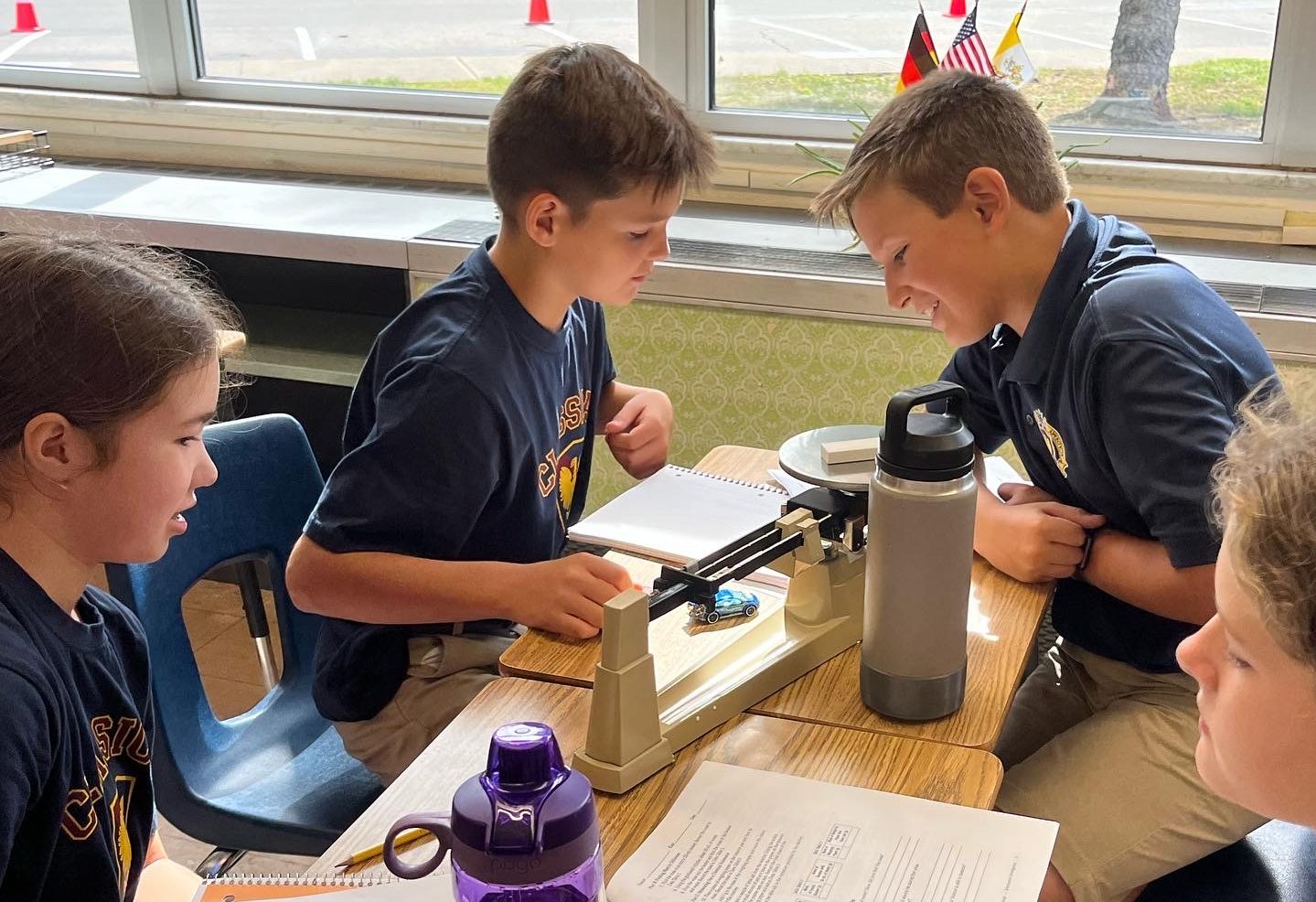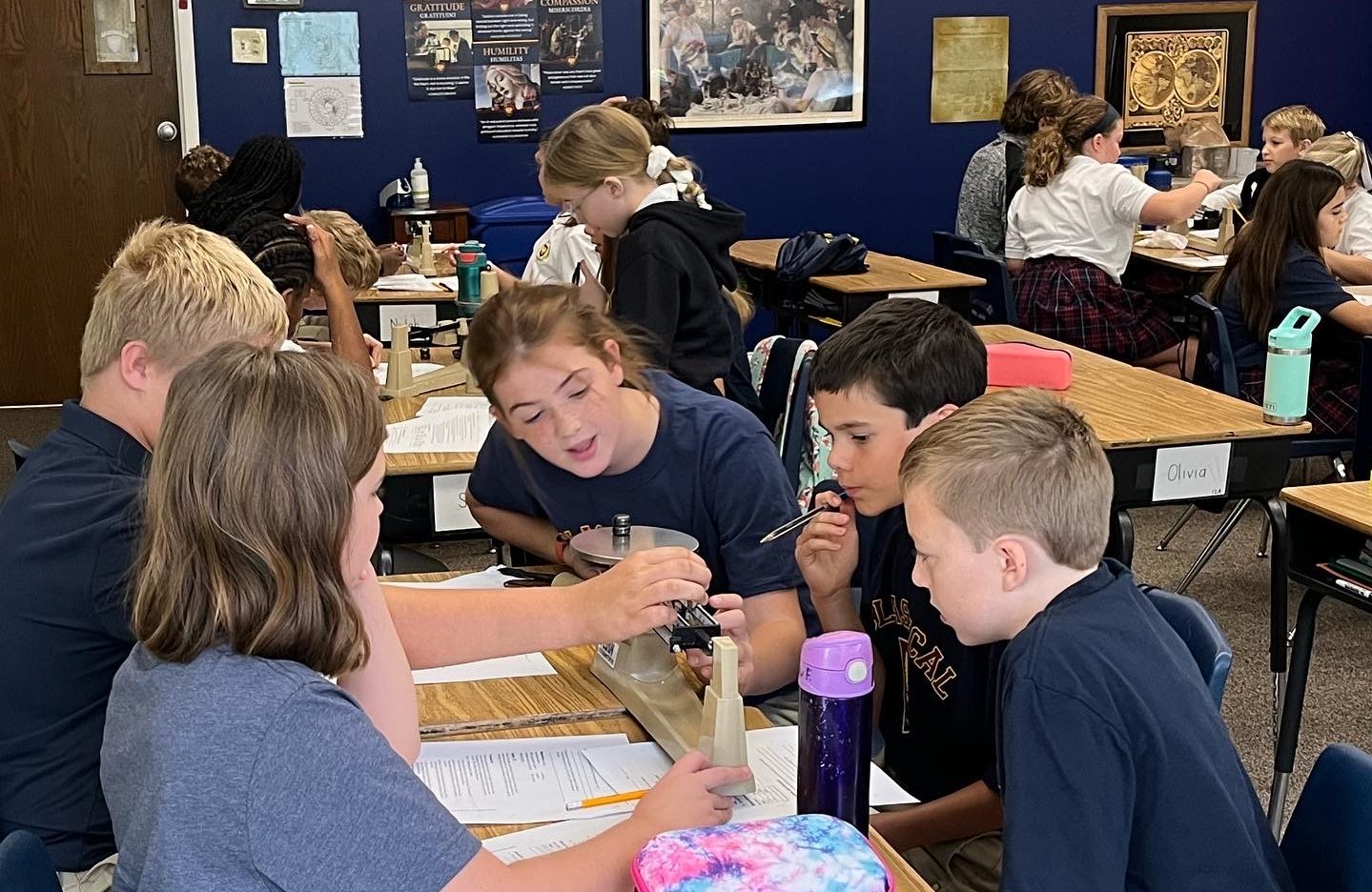Classical Approach to Science
“All truths are easy to understand once they are discovered. The point is to discover them.” – Galileo Galilei
At Cincinnati Classical Academy, we believe that science should not be studied primarily for the acquisition of technical skills and knowledge necessary to secure a lucrative job in the STEM professions. At CLASSICAL, science education is much richer and deeper than simply preparing students to work in the “global economy.”
We believe that science should be approached with respect and wonder at the knowledge that has been gained. We are right to be impressed, even overwhelmed, by how well we have come to know our universe. With our classical approach to science classes, students will experience the sense of wonder and delight as they consider the stars in the sky, the phases of the moon, the creatures in the sea and sky, the engineering feats of Leonardo DaVinci, the human body’s ability to heal itself, and so on.
At CLASSICAL, a serious study of science begins in early elementary school and builds toward mastery in the high school. When students graduate from CLASSICAL, our goal is for them to have an accurate understanding of the fundamental content: the models, theories, and laws of biology, chemistry, earth science, and physics. Therefore, our primary motivation for including science at every grade level, from K-12, is that it contributes to understanding ourselves and our surroundings. As such, science is complementary to the humanities in that they study different dimensions of truth but are both necessary to provide a satisfactory account of reality.
By the time our students graduate, they will have completed Biology, Chemistry, Physics, and Astronomy. They will also have the elective option to take AP Biology, AP Chemistry, or AP Physics.
Here are four unique aspects of our CLASSICAL K-12 science program:
1. Knowledge for Its Own Sake
First, the science curriculum here at CLASSICAL seeks acquiring scientific knowledge for its own sake. We believe that knowledge of the physical world is inherently worthwhile, regardless of whether it allows us to do anything, like get a job. The study of science fits well into a classical liberal arts program that respects and seeks knowledge for its own sake.


2. Content-Rich at All Levels
Second, science classes here at CLASSICAL are characterized by a spirit of excellence and rigor. We do not merely give lip-service to science while covering very little actual content; at CLASSICAL, our content-rich curriculum begins in elementary school and continues through high school graduation. In the youngest grades, students learn that attention to detail, careful work, and careful observation skills are necessary to excel in science.
3. Steeped in Historical Context
The third distinctive characteristic of science in a classical school is that study should be steeped in historical context, including the reading of primary sources. This provides necessary context for learning scientific information. The personalities, circumstances, rivalries, and lucky accidents of scientists allow for a narrative quality to be brought to science instruction. Science, especially in elementary school, can be taught as well-told stories.


4. Communicated through Clear and Concise Writing
Finally, science instruction at CLASSICAL has a strong focus on reading and writing. Our students will learn that scientific findings are communicated primarily through clear and concise writing, and so precise, well-written observations and explanations will be expected of them.
From the combined effect of the science curriculum, students should learn that we live in an orderly and intelligible universe that can be understood through careful, systematic investigation. They should also realize that science is a part of the innate human desire to know and understand, closely related to big questions that humans have always asked about the nature of reality.
By the time they graduate, CLASSICAL students should also have an accurate understanding of the process of science, achieved through personal lab experience and historical study. They should have a deep appreciation for science—not because they are necessarily going to be future college science majors, but rather that each student is moved and impressed by their study of science regardless of their primary academic interests.

